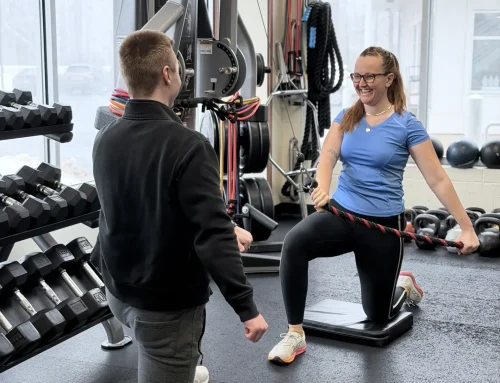Last Updated: 7/20/25
Sleep and Longevity: How Better Rest Supports Healthy Aging
C.S. Lewis once said, “Many things – such as loving and going to sleep – are done worst when we try the hardest to do them.” It turns out he was right. The harder we try to force sleep, the more we may find ourselves lying awake, staring at the ceiling, mind racing. Interestingly, the time it takes to fall asleep (called sleep latency) is considered perfectly normal if it falls between 10 and 20 minutes. Simply knowing this can ease the pressure and set the stage for better rest.
Sleep and longevity go hand in hand. More than just a nightly reset, sleep is when the body heals, the brain consolidates important experiences, and energy is restored. Better rest supports healthy aging, both mentally and physically.
Unfortunately, sleep is increasingly neglected. Since 1960, the rate of chronic sleep restriction in the U.S. has more than doubled. Today, over a third of adults report getting less than the recommended seven hours per night. And the effects are profound. Inadequate sleep is associated with increased risk of obesity, diabetes, cardiovascular disease, depression, impaired memory and coordination, and even early mortality.
Not sure where you stand? Pay attention to how you feel. Do you wake up feeling stiff or unrefreshed, or find yourself dragging through the day? Do you have trouble concentrating or remembering things, or feel more emotionally reactive than usual? If so, your body may be telling you it needs more quality sleep.
Often, it’s our routines that are working against us. Evening habits like screen time, caffeine or alcohol use, long naps, late-night workouts, or even tackling stressful tasks too close to bedtime can disrupt the natural rhythms that signal it’s time to wind down. And while it may seem harmless, simply keeping irregular sleep hours, like staying up much later on weekends, can throw your system off balance.
The good news? Sleep is a skill, and like any skill, it can be improved with practice and consistency. Start by anchoring your bedtime and wake-up time. Build a brief pre-sleep routine that helps you shift into rest mode—reading, deep breathing, or listening to calming music. Set up your space for success by keeping your room cool, dark, and quiet, and leave electronics out of the bedroom altogether. Small touches, like switching your phone to night mode or using a basic alarm clock without a snooze button, can also make a meaningful difference. Some find it helpful to track sleep with wearable technology for added awareness and accountability.
This week, take a look at your sleep habits and choose one area to improve. Whether it’s committing to a consistent bedtime or powering down your devices earlier, each small step helps. Better sleep isn’t just about feeling rested, it’s about giving your body and brain the reset they need to thrive.





